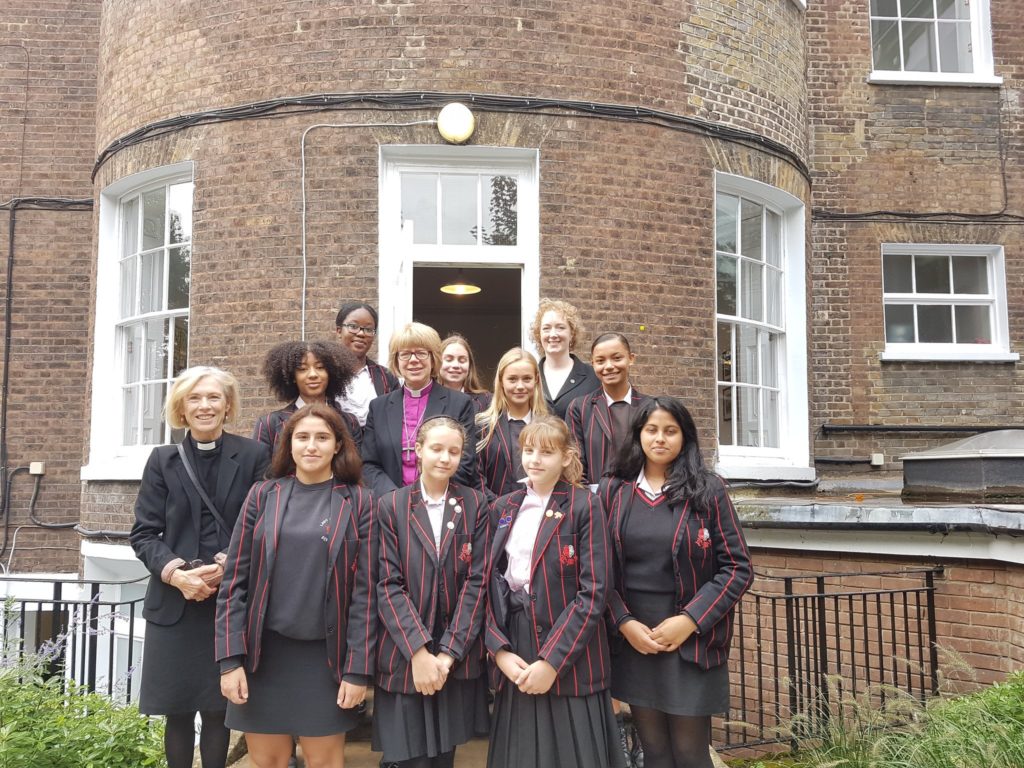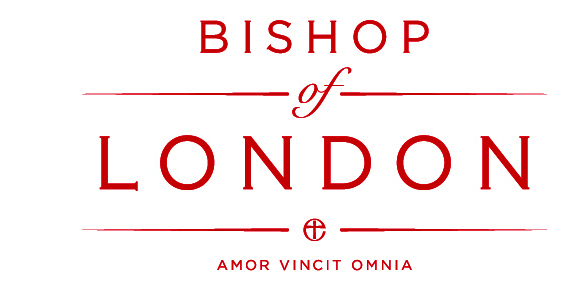
Bishop Sarah visits Lady Margaret School
The Bishop of London, the Rt Revd and Rt Hon Dame Sarah Mullally DBE, has visited Lady Margaret School where, in her sermon, she reflected on how young people are not just the future but the present, and that with courage they can transform their schools, communities and the world.
Read Bishop Sarah’s full address below:
Sermon Preached by the Rt Rev and Rt Hon Dame Sarah Mullally DBE, Bishop of London
Lady Margaret School Fulham, 27 September 2019
Matthew 25:34-40
It is a delight to be here this morning to celebrate all that is good about this school and you – its pupils. I hope that you know that you are wonderfully made by a God who loves you generously and extravagantly.
At times we can think that we can’t make a difference – this year we have seen how a 16-year-old girl who has found her voice has mobilised millions across the world. You as young people are not just our future you are our present and with courage you can transform your school, your community and the world.
I love speaking to young people in communities, in schools and in churches and it is true that the younger children are the more challenging and honest their questions. I was recently asked
“What’s heaven like?” Wow, how do we start to answer that? What’s heaven like? And before I could ask other questions follow “Is it full of chocolate? Is it bright white and resting on clouds? How big is heaven?” As a child put it, “Is it full of dead people and dead cats?” “How does heaven hold them all?”
Jesus was asked this question by his disciples, not about the dead cats, but about what heaven’s like. Rather than describing its dimensions or how it looked, he did his Jesus thing and answered a much more important question about how to live in this world, how to live like it is heaven on earth.
He frames it as a story about a king and his subjects but he’s talking about himself as the King, God our Father and us.
‘Come, you who are blessed by my Father, inherit the kingdom prepared for you from the foundation of the world. For I was hungry and you gave me food, I was thirsty and you gave me drink, I was a stranger and you welcomed me, I was naked and you clothed me, I was sick and you visited me, I was in prison and you came to me.’
Then the righteous will answer him, saying, ‘Lord, when did we see you hungry and feed you, or thirsty and give you drink? And when did we see you a stranger and welcome you, or naked and clothe you? And when did we see you sick or in prison and visit you?’ And the King will answer them, ‘Truly, I say to you, as you did it to one of the least of these my brothers, you did it to me.’
I think He’s saying: “Whenever you do a generous, loving, compassionate act, it’s as though I am on the receiving end”.
We are called to reflect the generosity of God whose love for us is extravagant to excess.
Do you remember the miracle of the fish and loaves? Jesus did not just feed the crowd, he did not just feed them until they were full but Jesus fed the crowd with 12 baskets left over – generously and extravagantly.
Do you remember the parable of the sower, the sower or God throw seeds not just on the good grown but on the rooks, the path and in the weeds – generously God sows his love.
Such is the nature of God. Our God is generous in his love, generous in his mercy, generous in the riches of his goodness showered upon us every day. God is not stingy or frugal.
That is how God loves us and he is calling us to love in the same way.
And generous, loving, compassionate acts are not always difficult or complicated.
Having been both a nurse and priest I have seen how it is the ordinary which often make the extra ordinary difference. Desmond Tutu once said: ‘Do your little bit of good where you are; it’s those little bits of good put together that overwhelm the world’.
It is my observation that it is not the well negotiated strategy or government policy that changes the world but often the simple – the ordinary making an extra ordinary difference – the way we welcome the stranger, care for those who struggles, include those excluded, speak up when something is wrong, the way to we speak respectfully to others even when we profoundly disagree and not least in our acts of kindness.
And what of kindness? Kindness is one of the most underrated virtues in today’s world. It is often accused as being bland or soft or feeble or weak. It isn’t; kindness which comes when and where it isn’t deserved, regardless of cost or reward is more than being nice and it can be very demanding.
In 2017 the Joseph Rowntree Foundation and Carnegie UK Trust published a report by Zoe Ferguson called ‘The Place of Kindness’. The report showed how random acts of kindness have a significant impact on the quality of lives. Kindness reduces social isolation and improves wellbeing. It also provides the building blocks for community empowerment and is a necessary ingredient of successful communities.
The report suggested that for the public policy realm talking about kindness is too personal and too ephemeral, but we all know when someone has been kind to us.
Maybe this year we are going to be in need of kindness more than ever. We risk the division in our communities widening and they will not be repaired by government legislation or policy but may by acts of kindness.
Within this school there are young women who hold the possibility of transforming the world – future lawyers, doctors, artists, musicians, scientists and Politicians – even a bishop or two but let us not miss the importance between what we are and what we do. It will be the ordinary which will make the extra ordinary difference to people – how we give them value, respect them, welcome them even when they are a stranger, we hold the possibilities of transforming the world.
I will finish with a poem which has been attributed to many and it is my prayer for you:
Sing like no one is listening.
Love like you’ve never been hurt.
Dance like nobody’s watching,
and live like it’s heaven on earth.
